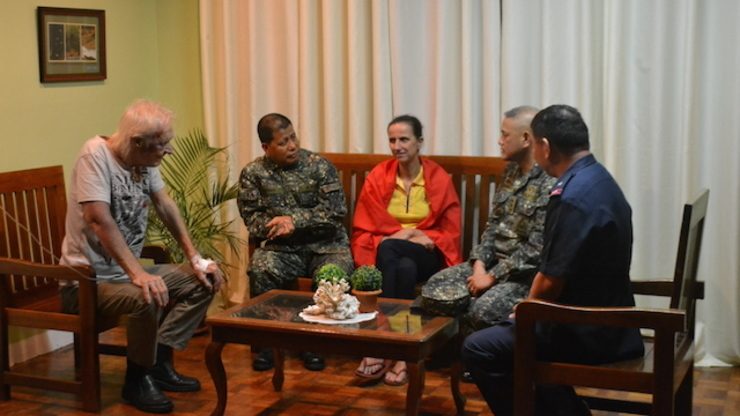SUMMARY
This is AI generated summarization, which may have errors. For context, always refer to the full article.

MANILA, Philippines – The Armed Forces of the Philippines (AFP) on Wednesday, November 5, expressed alarm that Islamic rebels may go on an arms spending spree after they posted a video online showing what they claimed to be a multi-million-dollar ransom windfall.
The Al-Qaeda-linked Abu Sayyaf apparently posted on social media a short video showing its members with stacks of the Philippine currency, which they said was ransom for two German hostages freed last month.
In the video, Abu Sayyaf spokesman Abu Rami claimed the money on display in a jungle setting was the full PHP 250 million ($5.7 million) demanded for releasing the captives.
“If this is really ransom money, then they can use it for evil purposes like buying more arms,” military spokesman Lieutenant Colonel Harold Cabunoc told reporters.
AFP chief General Gregorio Catapang also warned that the showcasing of the money may encourage other kidnappings, but said the money on display might not be real.
German and Filipino authorities have refused to disclose whether a ransom was paid to secure the release of the Germans.
The video was taken off Faceboook and not available for general viewing on Wednesday. But a major daily newspaper carried a photo grab from the two-minute clip on its front page.
A local reporter with Abu Sayyaf contacts who viewed the video before it was taken offline said he believed the video was genuine, although it was not possible to say whether the money was indeed the ransom payment.
The Germans – Stefan Okonek, aged in his 70s, and his partner, Henrike Dielen, in her 50s – were freed on October 17 on the remote southern island of Jolo after six months in the hands of the Abu Sayyaf.
Philippine authorities said the Germans were snatched at sea as they sailed a yacht near the western Philippine island of Palawan.
The Abu Sayyaf, founded in the 1990s with seed money from the Al-Qaeda network of Osama bin Laden, is blamed for the worst terror attacks in recent Philippine history.
These have included frequent kidnappings for ransom of Christians and foreigners in remote areas of the southern Philippines with minority Muslim populations.
Philippine authorities are believed often to help in the ransom negotiations, but never admit any involvement. Officially, the government has a no-ransom policy.
The military estimates the Abu Sayyaf only has about 400 armed fighters.
But the group enjoys the support of some local Muslim communities and is believed to sustain itself through its lucrative kidnap-for-ransom business.
Bandits are also known to kidnap people and then sell them on to the Abu Sayyaf. – Rappler.com
*USD 1 = PHP 43.8
Add a comment
How does this make you feel?
There are no comments yet. Add your comment to start the conversation.